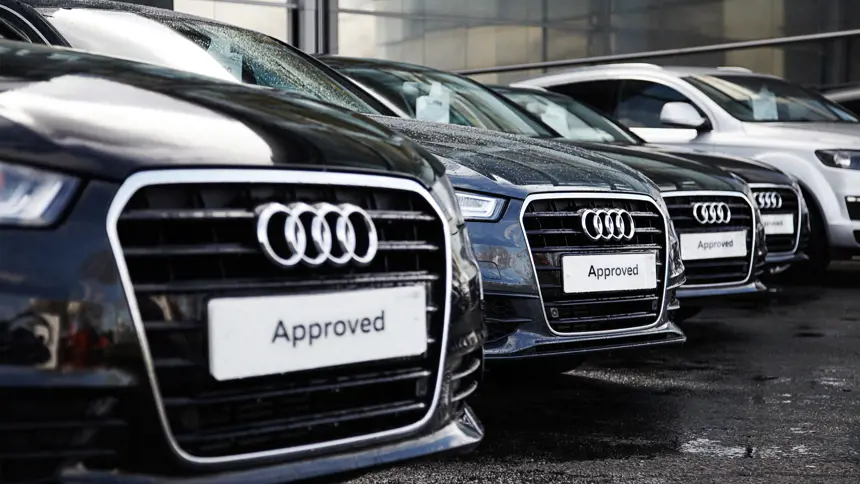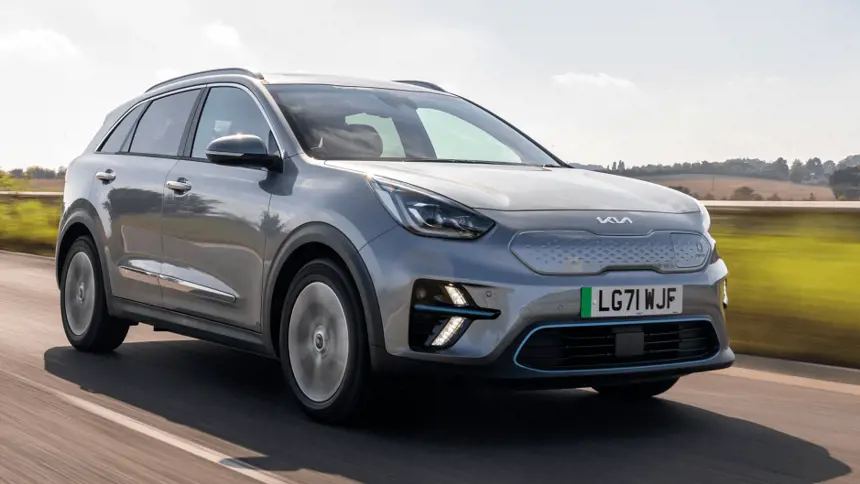Should I buy a new or used car?
Unsure whether your next car should be second-hand? We'll help you decide whether new, nearly new or used is the right choice for you
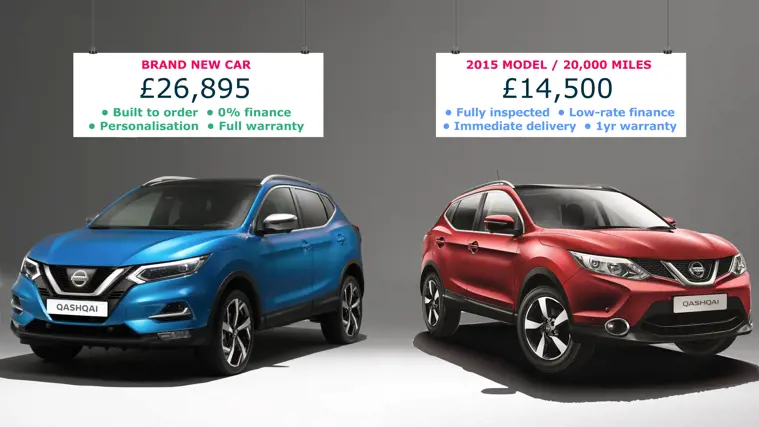
It can be a tough choice to make as to whether a new or used car is the best purchase to make. Each comes with its own pros and cons, and there are a number of factors to take into account.
There’s no need to be alarmed, though, as we have all the details you need to know to help you make the right decision.
The attraction of a brand new car is pretty obvious. It’ll be built to your exact specifications, every inch will be pristine, and you will have the manufacturer's warranty for extra peace of mind. There might even be a very enticing finance offer to boot.
But, just as you may think it’s an obvious choice, this attraction of a brand new car is soon equalled by some hugely more affordable cars that aren't even that much older, yet are of a much higher specification. Cars in general are becoming increasingly reliable, and so the risks of going for a used model are far less substantial than they would've been even just a decade ago - not to mention the fact that finance deals are increasingly common for used models, making purchasing a used car much more manageable.
You've also got an enormous amount of choice on the used market, from nearly new models with low mileage and significant discounts on the new price, to older cars that can be bought for less than £100 per month.
Both new and used cars benefit from extensive checks and guarantees to give you the confidence to buy online without having seen them first. Read on for more advice on whether a new or used car is best for you.
New or used car: key differences
Click on any line to jump to a more detailed description or scroll down to view all the pros and cons of buying a new or used car.
Buying a used car
Less expensive than a similar new car
Every brand new vehicle is sold at an inflated price - partly because consumers are willing to pay more for a shiny new car. But, sadly, that extra value disappears pretty much as soon as you drive off. This depreciation means that, unless in very rare occasions where a car’s value is caused to jump due to a change in the market, your car will not be worth as much as you paid for it when the time comes to sell it on.
Although this is bad news for new car buyers, it is great news for those on the used market. Depreciation means that there are big savings to be had on nearly new cars, which may be less than a year old, or even a few months old, but they have already lost that initial chunk of value.
Pre-registered models can be good value too: dealers register these cars themselves and put themselves as the first owner in order to hit sales targets. They are usually sold on with generous discounts, even though they may only have ten miles on the clock.
After three years, many vehicles are less than half the price that they were new, which can mean that they are tens of thousands of pounds cheaper.
Buy a better used car for the same budget as a new one
Your money can easily go much further when you buy a used car. You can pocket the difference or upgrade your expectations, with a better car for the same budget.
Instead of a brand new entry-level Ford Fiesta, which costs more than £16,000, you could have a 2018 BMW 1 Series, 2015 Mazda MX-5, or a 2015 Mercedes C-Class for a similar price.
Approved used schemes provide reassurance
Buy a manufacturer approved used car and you can be reassured that there are no nasty surprises awaiting. Approved used cars are put through a thorough mechanical inspection and history check to ensure that they meet the strict standards of main dealerships. These cars will also be clear of outstanding finance and serious crash damage, while the indicated mileage is also guaranteed. Approved used cars also come with a warranty.
Reduce your car tax bill
Tax rules are also a significant factor for new cars. At the time of writing, unless you have a fully electric vehicle, annual car tax will be at least £155 from the second year of ownership. New cars costing more than £40,000 will also face a £335 annual surcharge for five years from the second year of the vehicle being taxed.
That can all change if you choose a used car though. Opt for a car that was registered prior to April 2017 and you could find yourself paying a lot less as long as it's rated as a low-emissions model - with less than 121g/km of carbon dioxide (CO2). The maximum rate of tax you'll pay for one of these models is £30 a year, which could be a substantial saving. It's worth checking out a car's emission figure prior to making a puchase.
On the flip-side, much older cars that were first registered before March 2001 face a different, and considerably higher, rate of tax.
Flexible finance available at low rates
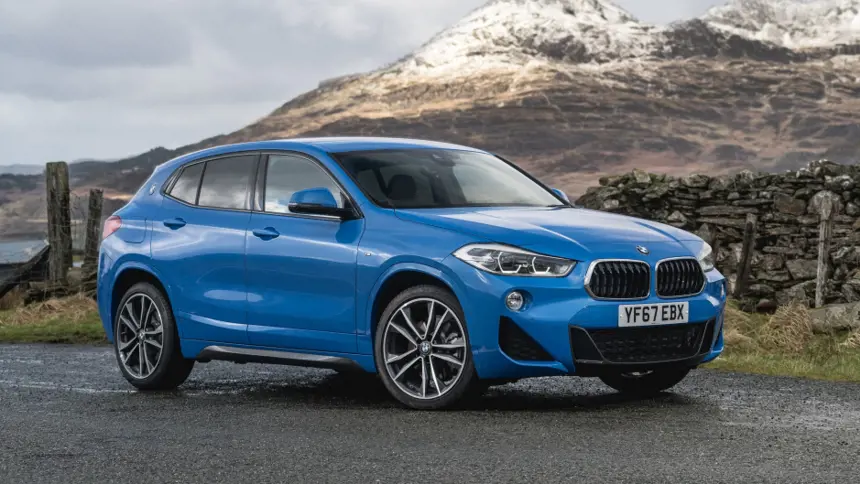
Finance options for used cars have been transformed over time and used buyers now have access to the same flexible, low interest, offers as new car customers.
The most popular form of finance is Personal Contract Purchase (PCP) due to its flexibility and more affordable monthly payments. The amount payable is directly related to the amount of value the car is predicted to lose over the course of a PCP agreement.
Financing a new car will see the value drop considerably and therefore increase your monthly payments. Where a used car will lose less value over the same period, used car finance often works out much cheaper.
Virtually every used car is available with Hire Purchase (HP) finance, but more and more used cars are now being offered with PCP, so the choice is now effectively yours as to which way you’d like to go.
Warranty still valid on used cars up to seven years old
If a new car is sold with a three-year warranty, that warranty stays with the car when it’s sold. So, if you were to buy that same car when it's one-years old, you'd still have two years’ cover remaining.
But some manufacturers are more generous. Subaru and Hyundai provide five years-worth of cover, while Kia, SsangYong and MG offer mammoth seven-year warranties. Even if you buy a three-year-old Kia, you'll still have four years of cover left. Toyota recently announced that it would start selling cars with a whopping ten year warranty, subject to a few simple conditions, such as that the car is serviced correctly at an approved dealership.
Immediate used car delivery
Waiting times for the most popular new cars can stretch for months, making the process infuriatingly long. You don't have that problem with used models, including pre-registered cars, which offer many of the benefits of a new car without the wait.
Built to your specification
Whether you want an economical model that looks like a racing car, or a panoramic sunroof that lets in plenty of natural light, buying a new car that's built to your specification means that you're in control - as long as you can afford the extra options.
Opting for a used car can mean you have to take whatever you can get. Finding your perfect model can prove tricky unless you're willing to be patient and undertake painstaking research to understand exactly which model comes with which features.
Personalisation options
Buying a new car doesn't just give you a choice of paint: more and more models can be thoroughly personalised to suit your tastes, such as with a contrasting roof colour, graphics, and premium interior materials. The result should ensure that no other car on the road is quite like yours.
You'll be the first owner
You won't need to worry how your car has been driven or if any damage has been covered up because you're its first owner. You'll have complete control over how it's driven and maintained from day one.
Further reassurance will come from the full manufacturer warranty.
Get the latest technology and safety equipment
Some car makers frequently update their vehicles as the pace of development threatens to make even newly launched cars obsolete. For example, Bluetooth for connecting your phone wirelessly is giving way to more advanced systems, such as Apple CarPlay and Android Auto, which allow your car and your phone to integrate seamlessly.
These regular updates mean that there's often a marked difference between the very latest cars and those that are only two to three years old.
Advanced safety technology such as autonomous emergency braking and lane-keeping assist are also now standard on many cars, including those in a lower price bracket such as the Nissan Micra. Automatic emergency braking and lane-keeping assist are fast becoming standard.
The very latest design
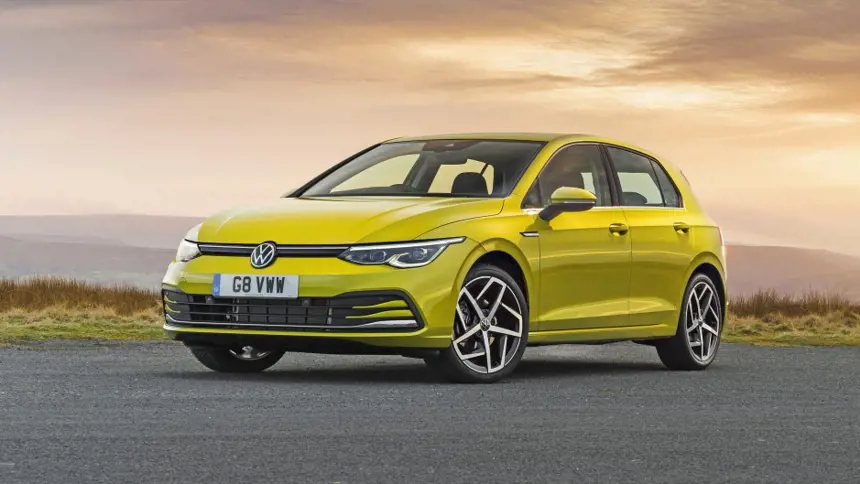
You'll have that slightly smug feeling knowing that you have a newly-launched product. Nothing quite beats that feeling of getting into the brand new car that everybody wishes they had.
Manufacturer-supported finance deals
You can take advantage of low-rate finance on new and used cars, but the offers for brand new vehicles tend to be the most attractive. It's not unusual for new cars to come with 0% APR finance, which eliminates any interest charges.
However, you can't always combine rock-bottom rates with other new car discounts and your monthly payments may still be higher than if you bought a nearly-new model.
Discounted car care packages
Many new cars are now sold with free or reduced-price servicing for at least the first three years, saving you money on running costs. The savings are often only available when you buy the car, so aren't offered to used car customers.

